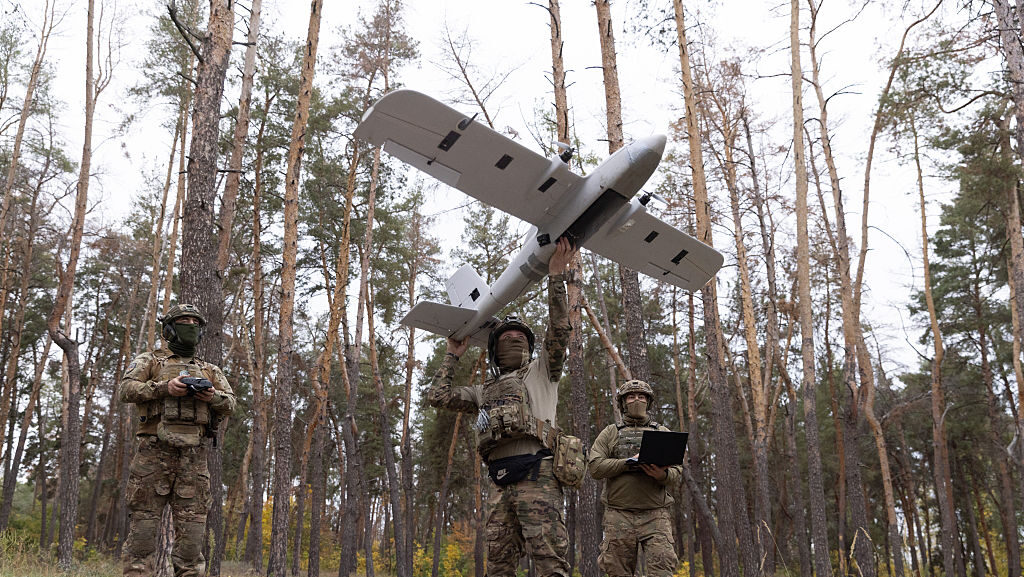World
Nordic Military Leaders Demand Proven Weapons for Future Acquisitions

In a significant shift in military procurement strategy, Nordic army leaders have announced that future weapons acquisitions must demonstrate proven effectiveness, particularly through their use in the ongoing conflict in Ukraine. During a panel discussion at the AUSA conference in Belfast, Maj. Gen. Peter Harling Boysen, the chief of the Royal Danish Army, emphasized that he will not consider purchasing any new technology that has not been validated in the field.
Boysen stated, “For new supply chains and new technologies, I’m never going to buy anything that hasn’t worked in Ukraine.” This sentiment was echoed by Lt. Gen. Pasi Välimäki, Commander of the Finnish Army, who noted that systems already in operation in Ukraine provide a more reliable indication of a product’s capabilities. He remarked that while demonstrators are useful, nothing compares to evidence of real-world effectiveness.
Focus on Real-World Testing
Latvia’s state secretary, Aivars Puriņš, also stressed the importance of rigorous testing for new technologies. Speaking on the sidelines of the AUSA event, he highlighted past failures in deploying technologies that were not adequately tested in combat-like conditions. “We have had too many stories… where the best technology solutions were deployed, and suddenly they didn’t work as they were supposed to,” he said, urging manufacturers to simulate real-life situations for better feedback.
Latvia is taking proactive measures to enhance its testing capabilities by establishing a drone competency center in Riga. This center aims to ensure that military drone systems are developed and integrated effectively within the Latvian armed forces. It will serve as a national platform to support local companies in creating drones tailored to military needs, with a focus on maintaining supply continuity during crises.
Investment in Drone Technology
Norway is also advancing its military modernization efforts through drone technology. Maj. Gen. Lars Lervik, chief of the Norwegian Army, announced a new drone program that will coordinate various initiatives within the army. This program is backed by an investment of 1.5 billion Norwegian Krone (approximately $149 million) over the next decade. Lervik noted that the goal is to enhance value in new acquisitions while fostering a culture of innovation across all branches of the army.
Recent advancements include a drone swarm pilot program featuring Six Robotics Valkyrie autonomous drones designed for intelligence, surveillance, and reconnaissance operations. Lervik expressed ambition for integrating different types of drones into coordinated units, stating, “We need to accept that there are no perfect solutions… If it’s good enough for the three other Nordic members, it’s good enough for me.”
The emphasis on uncrewed systems comes as NATO strengthens its presence on the Eastern Flank amid increased Russian drone incursions across Europe. Harling Boysen declared that any Russian drones operating in European airspace should be neutralized to send a definitive message to Moscow regarding unacceptable behavior.
Procurement Delays and Future Plans
In addition to drone initiatives, Lervik also addressed delays in Norway’s long-range precision fires acquisition. Originally planned for contractor selection during the summer, the process has faced setbacks due to various procurement complexities, including necessary information gathering from potential vendors. He hopes to finalize comparisons and provide recommendations to the government by March 2026, with a contract award expected shortly thereafter.
The competition for this acquisition includes major players such as Lockheed Martin’s M142 High Mobility Artillery Rocket System (HIMARS) and South Korea’s Hanwha Aerospace K239 Chunmoo Multiple Launch Rocket System (MLRS). Furthermore, Norway is considering purchasing up to 80 BAE Systems CV90 infantry fighting vehicles, part of a collaborative procurement strategy involving Estonia, Finland, Lithuania, the Netherlands, and Sweden.
As Nordic countries recalibrate their defense strategies in response to evolving threats, the focus on proven technology in the field reflects a commitment to enhancing military readiness and adaptability.
-

 Business1 week ago
Business1 week agoIconic Sand Dollar Social Club Listed for $3 Million in Folly Beach
-

 Politics1 week ago
Politics1 week agoAfghan Refugee Detained by ICE After Asylum Hearing in New York
-

 Health1 week ago
Health1 week agoPeptilogics Secures $78 Million to Combat Prosthetic Joint Infections
-

 Science1 week ago
Science1 week agoResearchers Achieve Fastest Genome Sequencing in Under Four Hours
-

 Lifestyle1 week ago
Lifestyle1 week agoJump for Good: San Clemente Pier Fundraiser Allows Legal Leaps
-

 Health1 week ago
Health1 week agoResearcher Uncovers Zika Virus Pathway to Placenta Using Nanotubes
-

 World1 week ago
World1 week agoUS Passport Ranks Drop Out of Top 10 for First Time Ever
-

 Entertainment1 week ago
Entertainment1 week agoJennifer Lopez Addresses A-Rod Split in Candid Interview
-

 Business1 week ago
Business1 week agoSan Jose High-Rise Faces Foreclosure Over $182.5 Million Loan
-

 Science1 week ago
Science1 week agoMars Observed: Detailed Imaging Reveals Dust Avalanche Dynamics
-

 Top Stories7 days ago
Top Stories7 days agoChicago Symphony Orchestra Dazzles with Berlioz Under Mäkelä
-

 World1 week ago
World1 week agoRegional Pilots’ Salaries Surge to Six Figures in 2025









